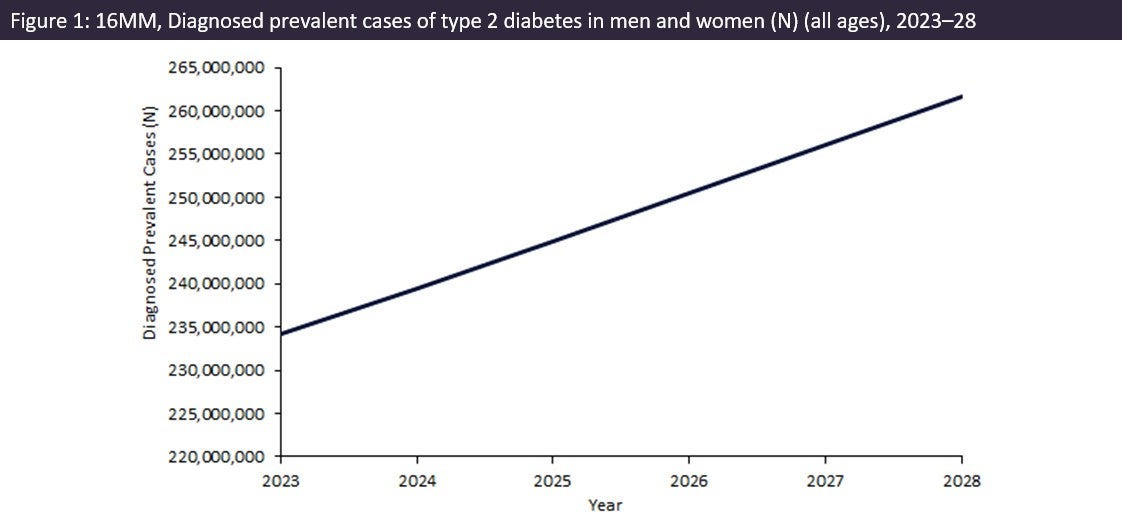From clinicaltrialsarena.com
GlobalData estimate that by the end of 2023, there will be 234 million diagnosed prevalent cases of type 2 diabetes in men and women in the 16 major pharmaceutical markets
Activation of the psychological stress response due to childhood adversity has been hypothesised to increase an individual’s risk of developing early-onset type 2 diabetes, which is when an individual under 40 years of age is diagnosed with the condition. Some research suggests that the pathology of early-onset type 2 diabetes is more aggressive, thus pre-disposing affected individuals to increased risk of developing lifelong complications earlier in life and consequently long-term treatment and medication. This more recently proposed and relatively unexplored risk factor for early-onset type 2 diabetes, childhood adversity, has been quantified in a May 2023 Denmark study by Elsenburg and colleagues published in Diabetologica. The study findings concluded that associations existed between high levels of childhood adversity across multiple life dimensions and the increased risk of developing early-onset type 2 diabetes in both men and women.

Source: GlobalData. ©GlobalData
Type 2 diabetes has been a long-standing public health threat, but its prevalence has increased substantially over the recent decades due to changes in lifestyle habits and the rise in obesity seen in both adults and younger age groups. GlobalData epidemiologists estimate that by the end of 2023, there will be 234 million diagnosed prevalent cases of type 2 diabetes in men and women in the 16 major pharmaceutical markets (16MM: US, France, Germany, Italy, Spain, UK, Japan, Australia, Brazil, Canada, China, India, Mexico, Russia, South Africa, and South Korea); by the end of 2028 that number is expected to increase to 261 million cases (Figure 1, above).
Data on childhood background from a nationwide register of 1.2 million Danish residents born between 1980 to 2001 were collected and collated; those individuals were then followed from ages 16 until 38 years old, and cases of type 2 diabetes were recorded. Childhood adversity across three life dimensions was divided into material deprivation, loss or threat of loss, and family dynamics. Participants were each allocated to one of the five levels of childhood adversity, which were: early life material deprivation, persistent material deprivation, loss, the threat of loss, and high adversity, based on the yearly counts of adverse events during childhood. Men who had experienced high levels of adversity during childhood such as exposure to poverty, illness or death in the family, or a dysfunctional household were 2.4 times more likely to develop early-onset type 2 diabetes by the age of 38 years old compared to those who experienced low levels of childhood adversity. Similar results were found for women, as those in the high adversity group were 1.6 times more likely to experience early-onset type 2 diabetes compared to women in the low adversity group. However, the risk of early-onset type 2 diabetes for men who experienced high levels of childhood adversity was more profound than for women who experienced high levels of childhood adversity.
Adversity during childhood could dysregulate bodily functions such as the normal functioning of the central nervous system; the accumulation of stress over time has been suggested to increase the risk of developing early-onset type 2 diabetes, which has been supported in this study. Minimising the adversity faced by individuals during childhood could reduce a portion of early-onset type 2 diabetes cases resulting from external circumstances.
https://www.clinicaltrialsarena.com/comment/childhood-adversity-type-2-diabetes/
No comments:
Post a Comment